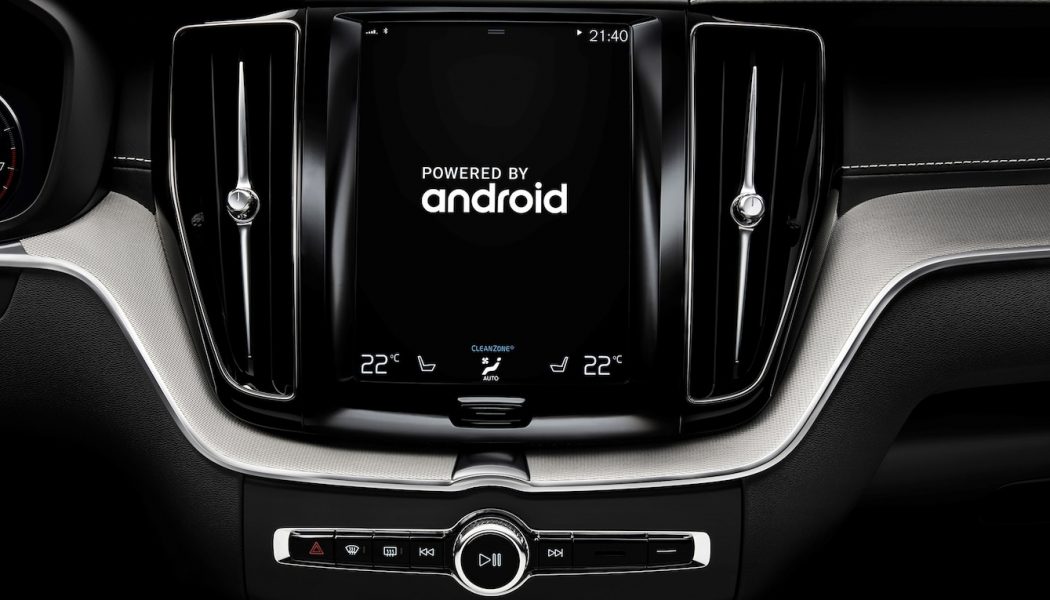“If the car was invented today and we said this consumer product will improve mobility and productivity, but … it will kill 33,000 people a year in America, do you think the government would approve it for sale?”
Volvo senior safety engineer Thomas Broberg’s measured iconoclasm came as the automaker defended its decision to restrict the top speed of all its vehicles to 112 mph.
I first came across this institutional mindset 30 years ago, when I interviewed Pehr Gyllenhammar, author, economist, lawyer, and, at the time, chairman of the board of AB Volvo. “We are not a luxury car producer,” declaimed Gyllenhammar bluntly. The smiles of the Volvo PR flacks became instantly fixed, brittle. Color drained from their faces. The Volvo chairman was happy to elaborate: “We design cars with high specification, but we are not in the luxury class as we define it, that is competing on price levels with the more expensive Mercedes-Benz and BMW models.”
Gyllenhammar didn’t care about the auto industry’s sacred cows. I left the interview trying to imagine GM’s Roger B. Smith suggesting private vehicles be banned from traffic-choked inner-city streets, or BMW’s Eberhard von Kuenheim wondering out loud how governments could continue to allow ordinary, unskilled citizens to control as complicated piece of equipment as a car.
By contrast, Gyllenhammar was a bristling mass of ideas and energy hovering between socialism and despotism: “What some people find disturbing is that I have power without capital. I find that amusing. I am an ordinary, mortal wage earner, and since there is no money behind my power, no one can inherit it, either.”
I wonder what Pehr Gyllenhammar would make of Volvo today. Volvo Cars is, of course, no longer part of AB Volvo, having been bought by Ford in 1999, which then sold it to China’s Geely in 2010. I suspect the man who titled his 1973 book I Believe in Sweden would be disappointed that it’s no longer Swedish-owned. But, equally, I suspect he’d be pleased that Volvo’s core design and engineering functions remain in Sweden and that Volvo cars and SUVs retain a distinctively Swedish character.
Volvo’s commitment to switching its entire lineup to PHEV and BEV powertrains echoes Gyllenhammar’s call 30 years ago that automakers should be forced to use the best available technology to reduce emissions. And he’d applaud Volvo’s $60 million investment in a new facility devoted to engineering, testing, and developing battery technologies in-house—rather than relying on third-party battery suppliers.
But I’m not sure how he’d feel about technologies such as the new Volvo infotainment system powered by Google’s embedded Android Automotive software.
Of course, connected cars are necessarily the future of the automobile, and not just because you can listen to your favorite tunes or safely text your friends while motoring. Connected technologies will enable next-gen Volvo vehicles to monitor their drivers and autonomously come to a halt should the system determine Sven or Annika to be intoxicated. Beyond that, connectivity will equip Volvos—and others—with ever more sophisticated levels of self-driving capability.
Of all the senior auto industry executives I’ve interviewed over the years, it was Pehr Gyllenhammar who best captured the existential appeal of the automobile: “The car is unique; it gives human beings a mandate to go wherever they want, whenever they want.”
This was powerful stuff. The Berlin Wall had come down just three months earlier, and smoky little Trabants were swarming all over western Germany, as easterners discovered for themselves the freedom decades of Communist rule had prevented them from enjoying.
Then he delivered the zinger. “If the car was invented today,” he said, “I doubt whether our governments would allow ordinary people to have such freedom.”
I wonder if we’ll look back at the days before our cars were smarter than we were, monitoring our every move behind the wheel, noting every route we take, and sending all the data to a server somewhere. Will we recall those days when going out for a drive meant just picking up the keys, walking out the front door, and heading off down the road—and wonder where our freedom went?









